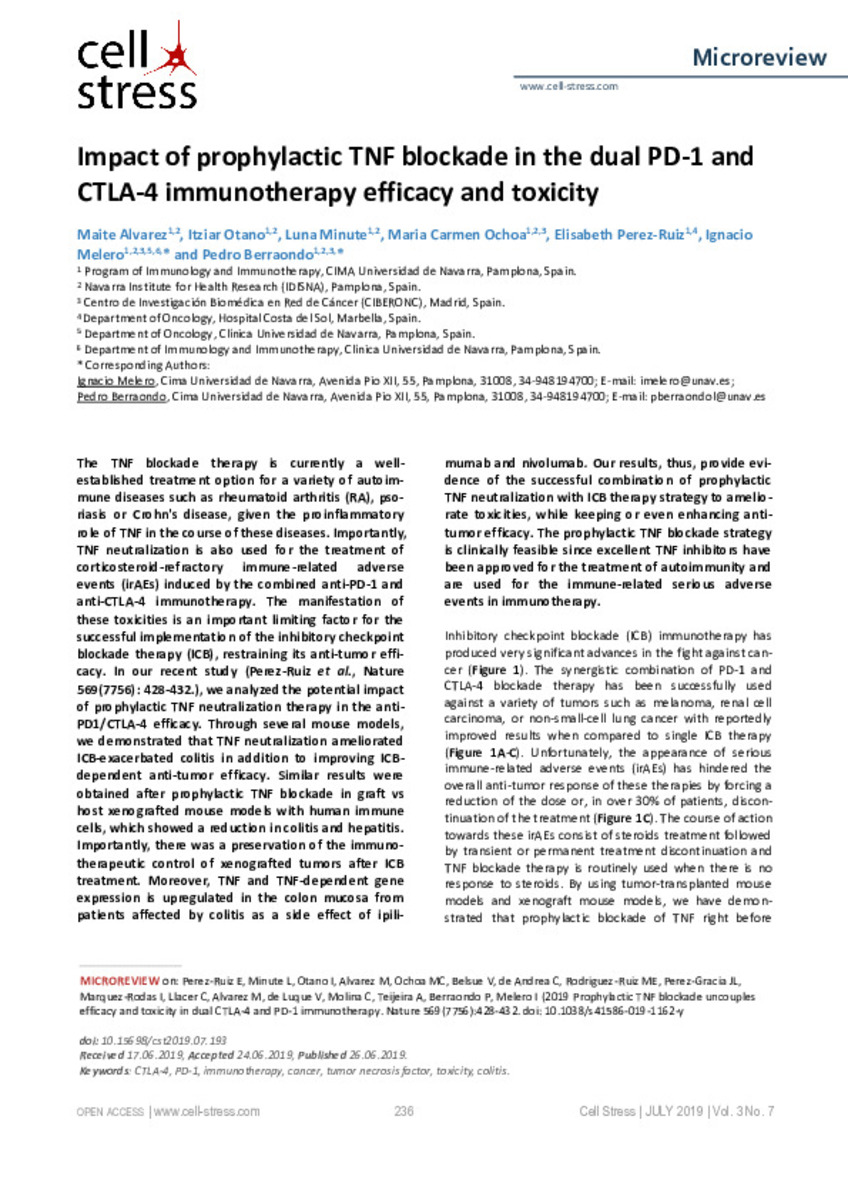Impact of prophylactic TNF blockade in the dual PD-1 and CTLA-4 immunotherapy efficacy and toxicity
Palabras clave :
CTLA-4
PD-1
Immunotherapy
Cancer
Tumor necrosis factor
Toxicity
Colitis
Fecha de publicación :
2019
Editorial :
Shared Science Publishers OG
Nota:
This is an open-access article released
under the terms of the Creative Commons Attribution (CC
BY) license, which allows the unrestricted use, distribution,
and reproduction in any medium, provided the original
author and source are acknowledged.
Cita:
Álvarez, M. (Maite); Otano, I. (Itziar); Minute, L. (Luna); et al. "Impact of prophylactic TNF blockade in the dual PD-1 and CTLA-4 immunotherapy efficacy and toxicity". Cell Stress. 3 (7), 2019, 236 - 239
Aparece en las colecciones:
Estadísticas e impacto
0 citas en

Los ítems de Dadun están protegidos por copyright, con todos los derechos reservados, a menos que se indique lo contrario.








